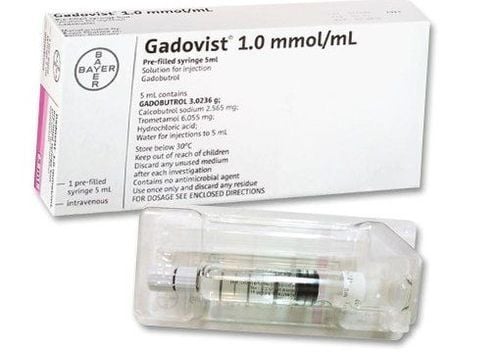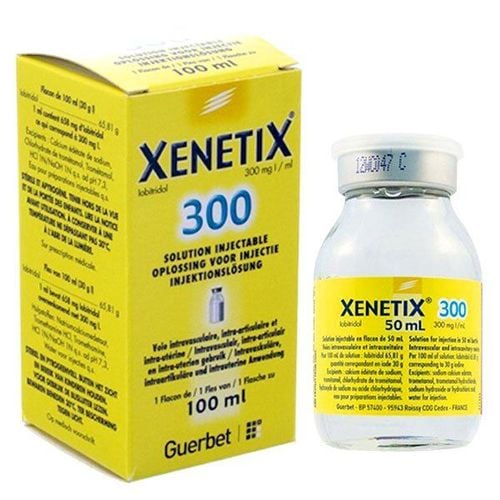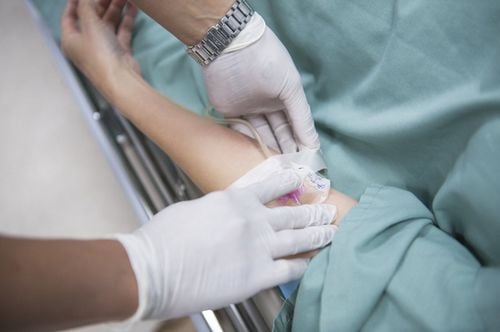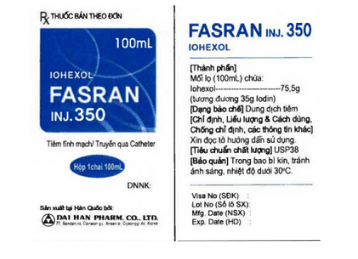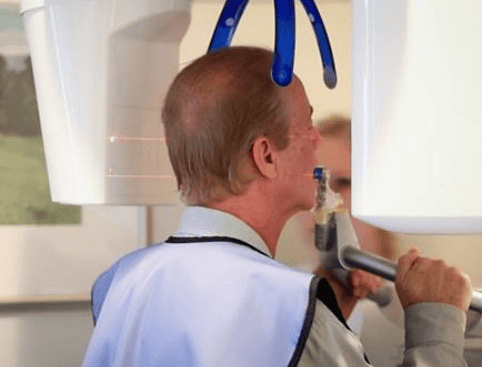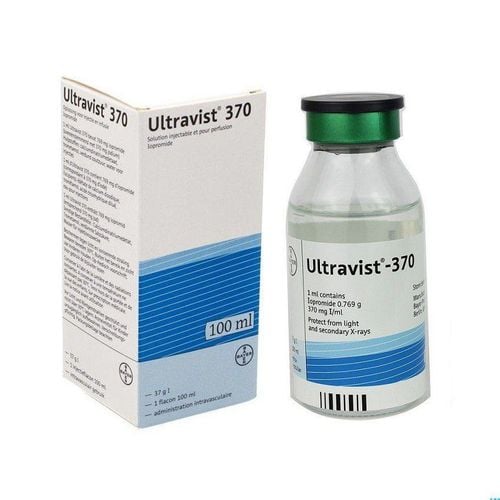This is an automatically translated article.
The article is professionally consulted by Master, Doctor Nguyen Thuc Vy - Doctor of Diagnostic Imaging - Department of Diagnostic Imaging - Vinmec Nha Trang International General Hospital.CT scan or computed tomography is considered one of the scientific achievements in the field of imaging. This method is an effective support tool to help doctors diagnose and make an accurate prognosis. However, patients also need to be aware that when having a CT scan, there are some risks that can make the condition worse, especially when contrast is used.
1. What is a CT scan?
CT body... These images provide more detailed information than conventional x-rays.
CT scan is used a lot but it is especially suitable for quick check of people who may have internal trauma from car accident or other types of trauma. CT scan can also be used to visualize nearly all parts of the body (such as: head, shoulders, spine, heart, abdomen, knees, chest...) and is used to diagnose disease and plan treatment, surgery, or radiation therapy.
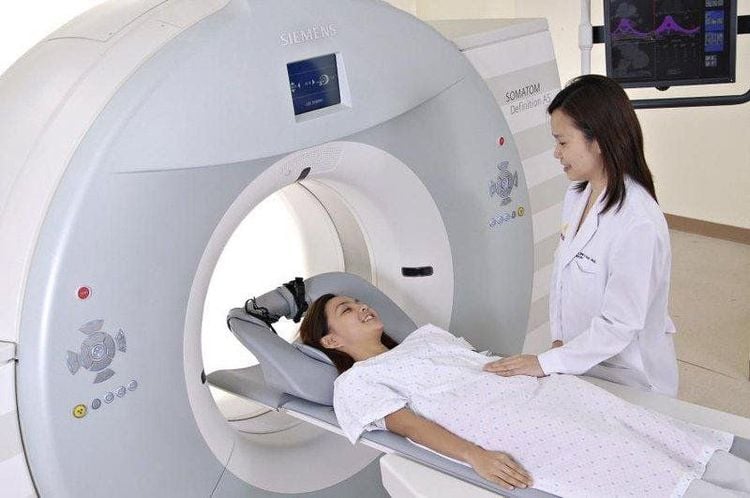
Chụp CT cho kết quả nhanh và chi tiết hơn X-quang
2. Who is assigned a CT scan?
CT scans have many uses, but they are particularly well-suited to disease diagnosis and injury assessment. Image results can help doctors diagnose diseases in patients such as:
Infections, muscle disorders and fractures
Detect and monitor cancer, heart disease, emphysema, or liver tumors
● Internal trauma and bleeding (people with accidents)
Locate tumors, blood clots.
● Guide procedures such as surgery, biopsies, and radiation therapy
● Keep track of some treatments, such as cancer treatment.
3. How will the CT scan take place?
The CT scan procedure consists of three parts as follows:
3.1. Preparation
Depending on where the CT scan is to be performed, you may be asked to: Take off some or all of your clothing and wear a hospital gown; remove metal objects (such as belts, jewelry, dentures, eyeglasses, as these may affect the final result); avoid eating or drinking for several hours before the procedure; Use contrast agent.
Certain special drugs called contrast agents are needed for some CT scans. It has the effect of clarifying the areas of the body that need to be examined. Contrast will block X-rays and appear white on the image, which helps to highlight blood vessels, intestines, or other structures.
Contrast can be used orally and intravenously. If the CT scan site is the esophagus or stomach, you will need to drink a large amount of liquid containing a special dye. In the case of intravenous injection, when CT scans are performed in places such as the gallbladder, urinary tract, liver or blood vessels, it will help to make the image more clearly visible. If the CT bowel is located, an enema can be used and then contrast is inserted into the rectum.
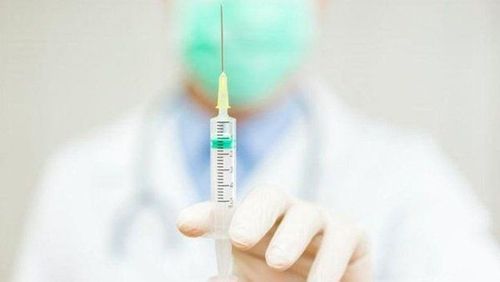
Tiêm thuốc cản quang khi chụp CT
3.2. During CT scan
For CT scan. You will have to lie on a table, which will slide through the opening to enter the cage. During the shoot you will be held in place by straps and pillows. When scanning over the head, the table can be fitted with a special bracket that holds the head still.
As you are moved into the scanner, the detector and the x-ray tube rotate, each rotation gives a thin slice image of the body.
The technician, who will sit in a separate room can look and communicate with you and ask you to hold your breath at certain times to avoid blurring the captured image.
3.3. After the CT scan
After the CT scan is complete, all of your activities or routines may return to normal. However, if you use a contrast agent during your CT scan, you will receive some special instructions. For example, you will be asked to drink lots of water to remove the contrast from your body.

Bệnh nhân uống nhiều nước sau khi chụp để loại bỏ chất cản quang
4. Possible side effects when having a CT scan with contrast injection
Contrast allergy can be mild, such as a feeling of warmth, nausea, dizziness, or sneezing, which usually fades over a short period of time. But for some people, there will be more severe allergic symptoms such as skin rashes, hives, cold... Or serious allergies including sore throat, asthma, low blood pressure, severe shock can react protection and sudden death. Each time contrast is used, there will be different degrees of adverse reactions. However, if you have a history of allergies, you should inform your doctor and technician to know your condition and have a suitable option.
Some people when using intravenous contrast for CT scan may experience pain and swelling in the veins (you should not apply heat in this case), or feel uncomfortable, you need to notify your doctor so that they can be treated. handle the situation in a timely manner.
For patients with severe hyperthyroidism, adrenal myeloma, and myasthenia gravis who use contrast agents for CT scanning, the disease may become worse and worse. These patients should notify their doctor in advance to have a timely backup plan.
Patients with poor renal function, serum creatinine level close to or equal to 2.0mg/dL, but not on dialysis, it is recommended that 12 hours before the scan start rehydration at 100ml hourly and continue until 12 hours after CT scan. In patients with serum creatinine levels greater than 2.0 mg/dL, the use of contrast media increases the risk of short-term or lifelong dialysis.
For a small number of patients, after contrast injection occurs, the drug extravasates, leaks into the tissues or muscles under the skin, and causes pain, swelling, and redness. However, the swelling and pain under the skin will disappear after a few days with the absorption of the contrast material. In contrast, there are also some patients with severe inflammation, ulceration and local nerve compression reaction. In this case, the patient needs to be hospitalized for monitoring and treatment. Some factors cause extravasation, leakage of contrast agent such as: unconsciousness, agitation, skin edema, small blood vessels....
Computed tomography is a diagnostic method. Accurate images help to detect many diseases on different organs of the body. When performing a CT scan, patients should strictly follow the doctor's instructions to get the most accurate diagnosis results.
Currently, Vinmec International General Hospital has invested and put a modern and standard CT scanner into the examination, diagnosis and treatment of diseases. Accordingly, the people performing the CT scan are a team of well-trained and highly qualified medical doctors who will give the best images to diagnose the right disease, thereby providing the right treatment, timely, and preserving the health of the patient. ensure optimal health for customers.
To register for medical examination and treatment at Vinmec System nationwide, customers can register HERE for support.
References: healthline.com, webmd.com/cancer, mayoclinic.org





